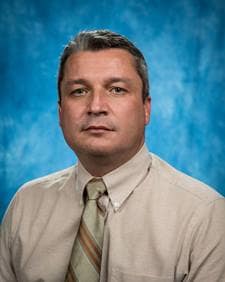Embry-Riddle Awarded $3,875,000 for Cybersecurity Scholarships for Students

Embry-Riddle Aeronautical University this week joined a national effort to build aviation and aerospace cybersecurity after being selected by the National Science Foundation (NSF) to receive $3,875,000 that will be awarded in scholarships to students in cybersecurity programs over the next five years.

Dr. Radu Babiceanu
“Embry-Riddle has this unique capability in the safety-critical domain of aviation and aerospace cybersecurity,” said Dr. Radu Babiceanu, professor in the Department of Electrical Engineering and Computer Science and principal investigator on the NSF-sponsored project. “Our students have the opportunity to really make a significant difference in the cybersecurity of transportation, as well as of satellite data and radar systems.”
As home to the Center for Aerospace Resilience (CAR), “Embry-Riddle is well-positioned to advance national and state goals for minimizing cybersecurity risks to aviation and commercial space enterprise by building workforce capacity,” said University President P. Barry Butler, Ph.D. “We are honored to be entrusted with this NSF grant, which will allow us to prepare future cybersecurity leaders.”
Twenty Full-Ride Scholarships
The grant to Embry-Riddle, supported by NSF’s CyberCorps Scholarship for Service program, is intended to address an urgent need for highly skilled cybersecurity professionals, especially in government agencies. Twenty scholarship recipients, 16 undergraduates and four graduate students, will receive full tuition and fees to attend Embry-Riddle, plus stipends, for up to two years, and will agree to work in cybersecurity for federal, state, local or tribal governments for the same duration as their scholarship support after graduation. The recipients will gain hands-on experience using state-of-the-art equipment in CAR facilities.
“As cyber threats continue to evolve in complexity, so must our approaches to cybersecurity education and our workforce," said Sethuraman Panchanathan, director of the NSF, in an announcement from the agency. “The cybersecurity talent shortage remains a critical issue in the United States, with businesses and government agencies alike struggling to fill critical cybersecurity positions.”
The project proposed by Embry-Riddle, which was one of eight chosen by the NSF to receive funding, is designed to recruit a diverse group of scholarship recipients, offering them “a supportive environment for them to flourish through effective mentorship, well-developed curriculum, student involvement activities, and research experiences leading to their graduation and successful placement,” according to the project abstract. It will involve Embry-Riddle’s Daytona Beach, Florida, and Prescott, Arizona, campuses, Babiceanu said, selecting scholarship recipients “from the best of our diverse group of applicants from both campuses.”
Co-principal investigators include associate professor Dr. Keith Garfield and assistant professor Dr. Omar Ochoa, from the Daytona Beach Campus; as well as Dr. Krishna Sampigethaya, chair and associate professor of the Department of Cyber Intelligence and Security; and Dr. Jon Haass, professor in the Department of Cyber Intelligence and Security, both from Prescott.
The award to Embry-Riddle demonstrates its excellence in the aviation and aerospace cybersecurity realm, said Remzi Seker, Embry-Riddle’s associate provost for research.
“The Center for Aerospace Resilience was established to coordinate Embry-Riddle’s efforts related to aviation and aerospace cybersecurity,” said Seker. “This award is a testament to the quality of research performed by the faculty members affiliated with CAR, as well as Embry-Riddle’s commitment to meeting the national need for cybersecurity professionals who can improve the cyber resilience of aviation and aerospace systems.”
“We want to thank the State of Florida for providing Embry-Riddle with support as we pursued this grant, including the Governor and Congressman Michael Waltz and his team," Butler added. "This project will be critical to Florida’s future, innovation and high-paying jobs."

 Michaela Jarvis
Michaela Jarvis